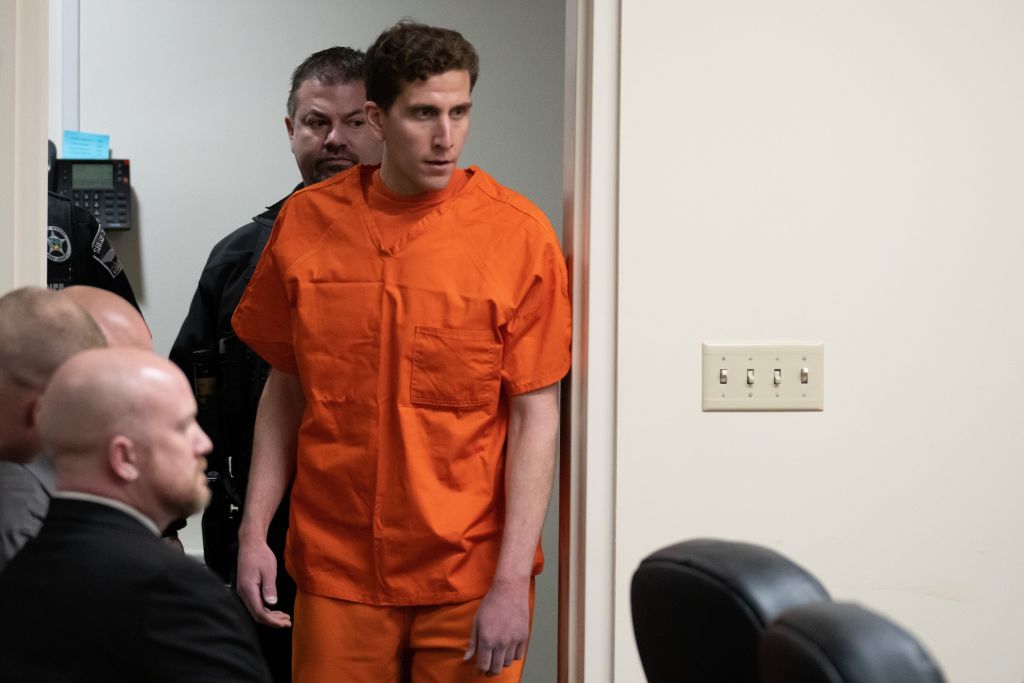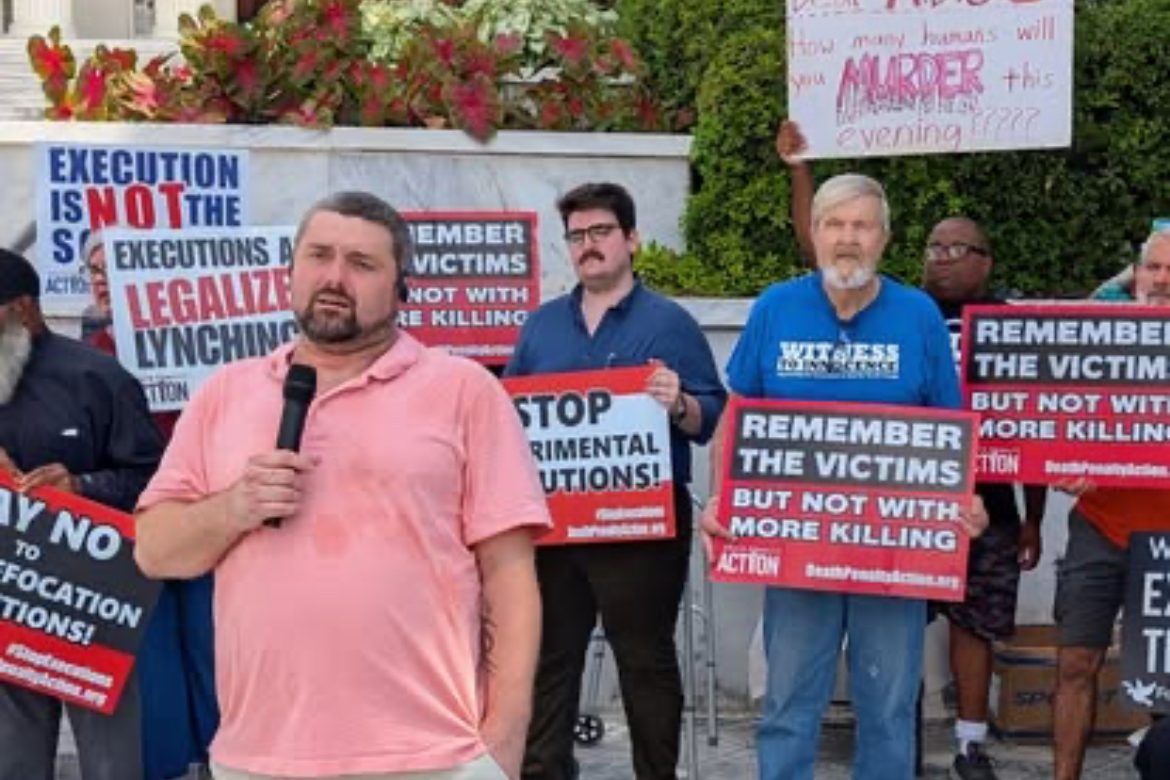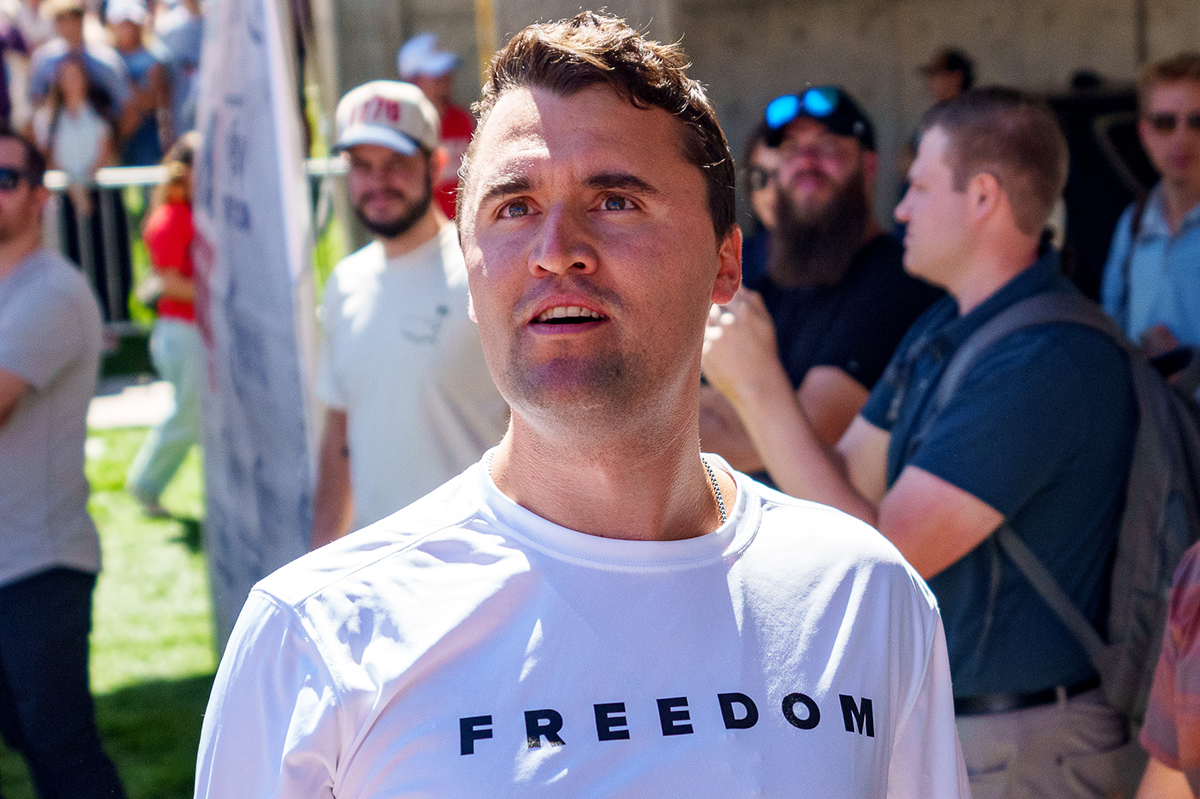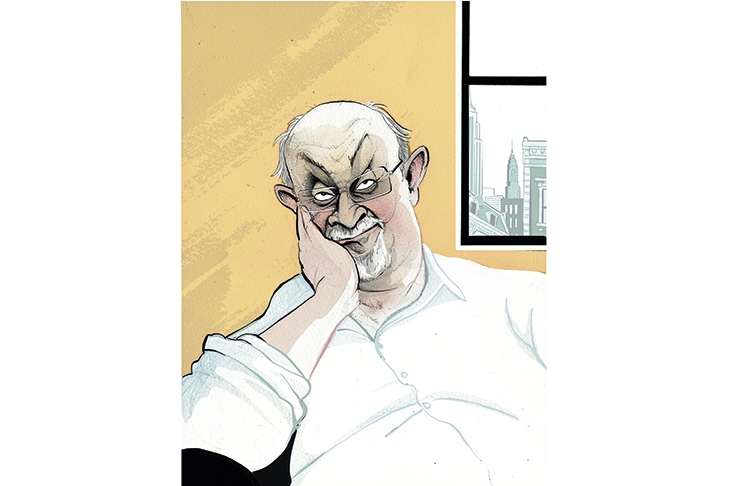Bryan Kohberger, the man accused of stabbing four Idaho college students to death, could face a firing squad if convicted.
At his arraignment Monday, Kohberger “stood silent” when asked to enter a plea, leaving the judge to formally enter a not guilty plea on the suspect’s behalf. A trial is scheduled for October 2.
The prosecution has sixty days to notify the court if they want to pursue the death penalty — and because of a new Idaho law that goes into effect on July 1, the state could administer the death penalty by firing squad if lethal injection drugs are not available.
Idaho governor Brad Little signed the law on March 24 after it passed both chambers of the Idaho Legislature.
“Throughout my life in public service, I have supported capital punishment when our justice system determines death is the only appropriate sentence for a person who committed a heinous crime,” Little wrote in a Transmission Letter. “I am signing House Bill 186 because I support policies that enable the State of Idaho to successfully carry out the death penalty.”
Idaho lawmakers began to consider alternative ways to administer the death penalty due to drug shortages needed for lethal injection.
“We currently have eight people sitting on death row in Idaho and their sentences of execution cannot be carried out due to corporations refusing to sell Idaho the chemicals necessary to carry out lethal injections for executions,” said Republican representative Bruce Skaug, the bill’s co-sponsor.
In 2016, Pfizer, the largest federally approved manufacturer to supply products for lethal injection, blocked the use of its drugs for execution. The European Union, which abolished the death penalty in 1983, has also introduced strict export controls in the last decade that prevent lethal injection drugs from being supplied to the US for capital punishment.
Skaug originated the bill last year when the Idaho Department of Correction had to cancel the scheduled execution of Gerald Pizzuto Jr. because it could not obtain the necessary chemicals for legal injection. Pizzuto has spent more than three decades on death row for his role in the 1985 killing of two prospectors.
Deborah Denno, a Fordham professor of law who specializes in the death penalty, said that the new law is a good step forward.
“The firing squad is the quickest, most certain, and least painful method, and it’s the only method for which we have experts who conduct it,” she told The Spectator. “None of these adjectives applies to lethal injection.”
Despite passing both chambers of the majority Republican legislature earlier this year, the bill was not without opposition.
“It’s psychologically damaging to anybody who witnesses it, anybody who has a hand in it, anybody who plays a role in the aftermath and the clean-up,” said Republican senator Dan Foreman, a retired police officer.
Idaho is not alone in legalizing firing squads for execution. Four other states — Mississippi, Utah, Oklahoma and South Carolina — have laws allowing firing squads if other methods are unavailable, according to the Death Penalty Information Center.
Denno said that more states should follow suit.
“It’s inexcusable and perplexing that states haven’t done so, given this country’s forty years of challenges and botches with lethal injections,” she said.
Still, firing squads remain an uncommon method for execution. The last person to be executed by firing squad was convicted killer Ronnie Lee Gardern, who was executed in a Utah prison in 2010.

























